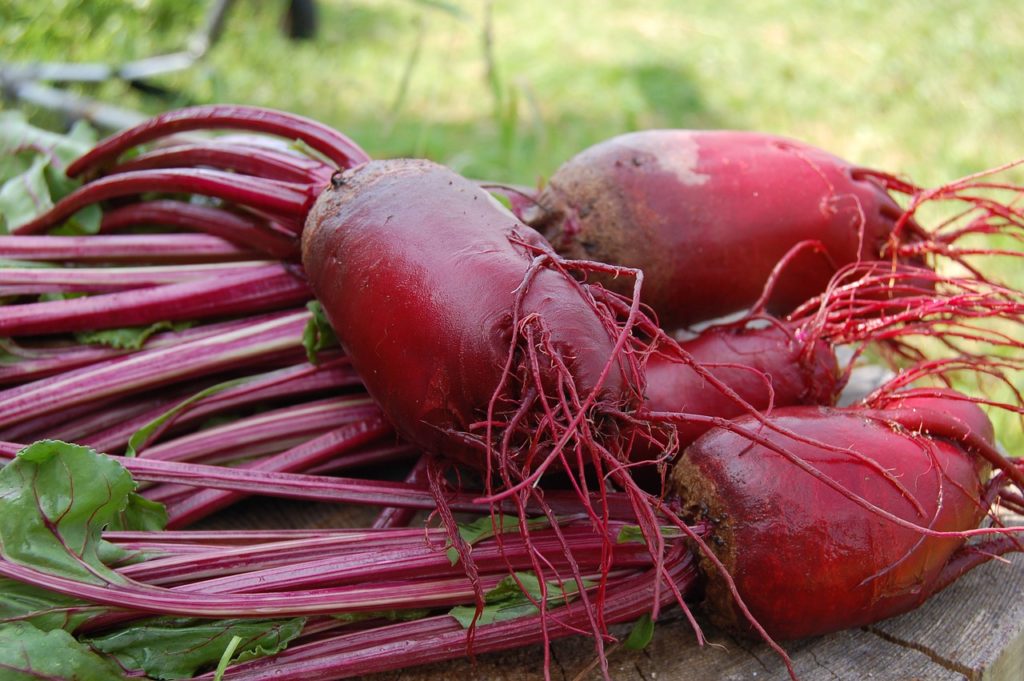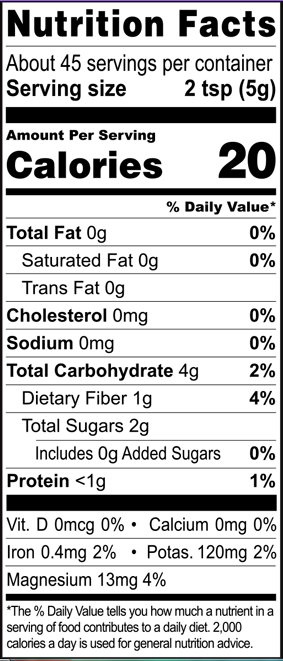Beetroot is becoming more well-known as a superfood. Beets and beetroot juice, according to recent research, can boost athletic performance, lower blood pressure, and increase blood flow. So much so that this nutrient-dense meal is now being incorporated into an expanding number of juices and drinks. Beetroot is a member of the beet family, including sugar beets, and it is genetically and nutritionally distinct. Sugar beets are white and commonly extract sugar and sweeten processed meals, and sugar cannot be extracted from beetroot, generally red or gold.
Beet Root Nutrition Facts
What Is Beet Root?
Beetroot (Beta vulgaris), sometimes known as red beet, table beet, garden beet, or simply beet, is a root vegetable. Beetroots are high in fiber, folate (vitamin B9), manganese, potassium, iron, and vitamin C, among other minerals. Beets and beet juice have been linked to various health advantages, including enhanced blood flow, reduced blood pressure, and improved exercise performance. The high amount of inorganic nitrates are responsible for several of these advantages. Raw beets are excellent, but they’re more commonly cooked or pickled. Beet greens, or the leaves of beets, can also be consumed.
Beetroot comes in a wide variety of colors, including yellow, white, pink, and dark purple. Whether raw or cooked, Beetroot has roughly 8–10% carbohydrates. Simple sugars like glucose and fructose account for 70% and 80% of the carbohydrates in raw and cooked beetroots, respectively. Beets are also high in fructans, short-chain carbohydrates classed as FODMAPs. FODMAPs are challenging to digest for some people, resulting in unpleasant digestive symptoms. The glycemic index (GI) of beetroots is 61, which is considered medium. The glycemic index (GI) measures how quickly blood sugar levels rise following a meal.
Health Benefits Of Beet Root
Here are many health benefits of beetroot:
Heart health and blood pressure
A 2015 study looked at the impact of drinking 250 milliliters of beetroot juice per day on 68 people with high blood pressure. After consumption, the researchers discovered that doing so considerably reduced blood pressure. They believe the elevated nitrate levels in beet juice were responsible for the antihypertensive impact. They advocate eating high-nitrate veggies as a low-cost, effective treatment for high blood pressure.
People should never discontinue taking blood pressure medication without first consulting their doctor. High blood pressure is a significant risk factor for heart disease and stroke (CVD). Heart failure, stroke, heart attacks, and other life-threatening complications of CVD can be avoided by reducing it by dietary changes and other measures.
Diabetes
Alpha-lipoic acid is an antioxidant found in beets, and this chemical may aid in reducing blood glucose levels and the improvement of insulin sensitivity. The effects of alpha-lipoic acid on the symptoms of diabetic neuropathy were investigated in a review of studies published in 2019. The researchers discovered that giving alpha-lipoic acid supplements to persons with diabetes, both orally and intravenously, reduced the symptoms of peripheral and autonomic neuropathy. However, most of the doses used in these trials were significantly higher than those found in beetroot. The study on the effects of smaller food dosages is still inconclusive.
Digestion and regularity
The fiber content of one cup of beetroot is 3.81 grams (g). Fiber consumption is critical for proper digestion and gut health. A single cup of beets can provide more than 8.81 percent of a person’s daily fiber requirement, depending on their age and sex, according to the United States Department of Agriculture (USDA).
Exercise And Athletic Performance
In several trials, supplementation with beet juice has been shown to increase the quantity of oxygen that muscles absorb. High amounts of beetroot juice boosted the time trial results of expert cyclists, according to a 2019 study. Another study looked at 12 recreationally active female volunteers in the same year. However, the researchers found no evidence that beet juice supplementation improved the subjects’ athletic performance. As a result, more research is needed to prove beetroot’s advantages on exercise performance.
Adverse Effects
Beet juice consumption might result in crimson, purple, or pink urine or feces. Even though this may appear scary, it is not a cause for medical worry, and this is referred to as “beeturia” by doctors. People prone to oxalate-type kidney stones should avoid eating too many beet tops.
Beetroot juice may also cause stomach upset in people with gastrointestinal problems or irritable bowel syndrome. Beets are high in nutrients. When looking at the influence of nutrition on health, people should analyze their total eating patterns. It is preferable to have a diet rich in various foods and nutrients to maintain excellent health.
Diet
Beets can be roasted, steamed, boiled, or pickled, and they can also eat raw. The following suggestions can assist individuals in obtaining the nutritional benefits of beets deliciously:
- Peel the beets and puree them with a mixture of fresh orange, mint, pineapple or apples, lemon, and ginger in a blender.
- After that, it can be strained for a smoother texture. Keep in mind that adding other liquids or fruits to the drink may increase the sugar.
- Add raw beets to a salad or coleslaw by grating or slicing them.
- To make a tasty match, top roasted beets with goat’s cheese.
- Serve raw beets with a squeeze of lemon and a sprinkling of chili powder.
When selecting a beetroot, look for heavy for its size and free of surface damage. If a beet’s green tops are still attached, they appear fresh and not wilted. These are also edible and contain a lot of nutrients. Refrigerate beets in a securely covered bag for up to three days.
Conclusion
Beetroots are high in minerals, fiber, and various plant components.
Their inorganic nitrate level is responsible for their health benefits, including improved heart health and increased exercise ability. Beets are sweet, outstanding in salads, simple to make, and can be eaten raw, boiled, or baked.


